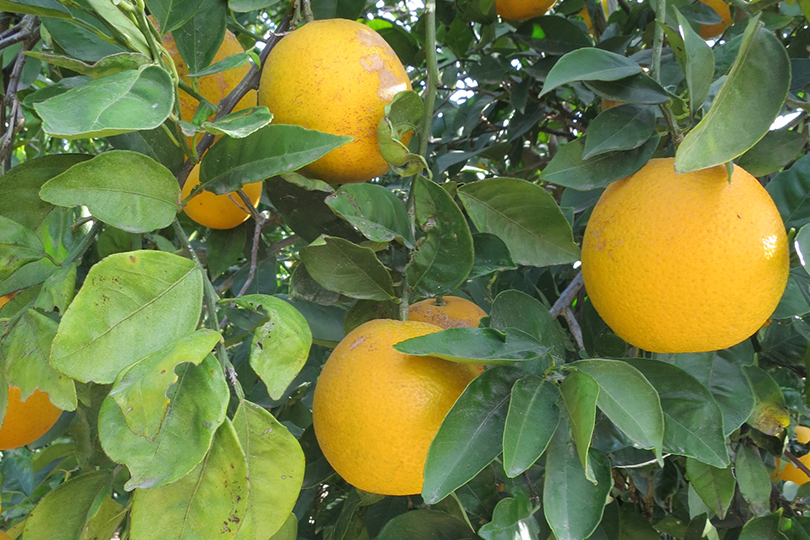By Shala Gean
Communications Specialist
The Rio Grande Valley citrus crop looks good in both size and quality, according to Dale Murden, president of Texas Citrus Mutual.
Texas is the third-largest citrus growing state, with this year’s crop value estimated at $87 million.
The drop in citrus production in Florida due to Hurricane Irma has helped boost Texas citrus prices. But strong prices have led to an increase in citrus theft in the Valley.
“Fruit theft isn’t anything new,” Murden said. “We’ve experienced it for years. It kind of ebbs and flows with prices.”
Citrus can disappear by the bag or by the truckload. After the fruit is stolen, it ends up at flea markets as far as Laredo. He said most thefts occur at night when no one is around.
It’s an increasing problem and difficult to guard against because some groves are several thousand acres.
“It’s really hard to guard against it down here, because groves are scattered over a three-county area,” Murden said.
To help slow thefts, Texas Citrus Mutual has implemented a voluntary buyer-seller proof of ownership program.
Texas Citrus Mutual provides booklets that a seller can give to a buyer to prove the fruit was purchased legally.
Growers are embracing the voluntary system, Murden said, because they want to stop thefts, too.
In addition to protecting their groves from theft, growers are also on the lookout for pests and diseases as harvest seasons picks up.
Last year, Mexican fruit fly quarantines in the Valley significantly increased production costs.
“It got very expensive last year to remain in compliance if you were in a fruit fly quarantine,” Murden said. “I had to spray an additional 18 times on my grove through harvest just to stay in U.S. Department of Agriculture regulations.”
While the discovery of the citrus canker in Houston has remained fairly isolated, the potential to spread poses a threat to groves in the Valley.
Citrus canker is a bacterial disease that causes lesions on the leaves, stem and fruit of plants. It causes the citrus tree to continually decline in health and fruit production until the tree stops producing fruit.
Cankers are highly contagious and spread easily during storms. Growers in the Valley are concerned because Hurricane Harvey could have spread the canker to surrounding counties.
Murden hopes USDA will expand its surveys to determine where the canker has moved since the storm.
“That’s something we are really keeping an eye on, because if it made its way down here, that could be devastating for the industry,” Murden said.
He also noted that Texas Citrus Mutual is working with growers to make sure they are certified to be in compliance with the Food Safety Modernization Act (FSMA) rules that go into effect in January.

